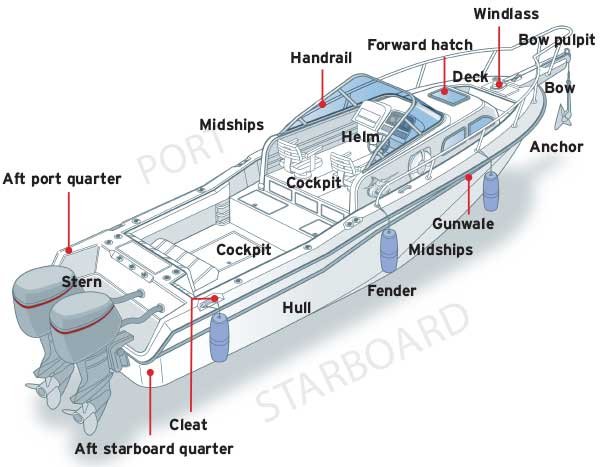
Marine terminology may sound like old, archaic jargon to some, but there are good reasons why it's important to use the right words aboard a boat.
Say What?
Let's start with the most important four terms.
The front of a boat is called the "bow," and the back is the "stern."
"Starboard" refers to what is the right side of the boat if you're facing the bow; "port" refers to what is the left side if you're facing the bow. (To remember this, note that "port" and "left" each have four letters.)
So why don't we just say front, back, left, and right?
The answer is that the starboard side is ALWAYS the starboard side, no matter which way you, or anyone else, is facing on board. This is important. Imagine that you're on a boat and the captain asks you to quickly put fenders over the right side. If you were facing one another, would that be your right or his? Or imagine it's getting dark, or heavy weather is upon you, and you can't see which way people are facing on the boat. Saying "It's to your left!" or "Look to the right!" would make no sense to anyone and would create confusion that could threaten the crew and boat. If someone yells, "Man overboard! Port side!" clear directions and the use of accurate terms could mean the difference between locating, or losing sight of, a victim.
"Gunwale" (pronounced GUNN-ell) is the edge of the boat where the hull meets the deck; the name is derived from the lip at the edge of the deck that at one time prevented cannons from sliding into the sea as the ship rolled. The toilet on a boat is called the "head," which gets its name from its traditional location in the head, or forepart, of the ship. Cabins and other compartments within the boat are divided from each other by "bulkheads" (walls), which are vertical partitions between the cabin "sole" (floor) and the underside of the deck that provide structural stability to the boat's design.